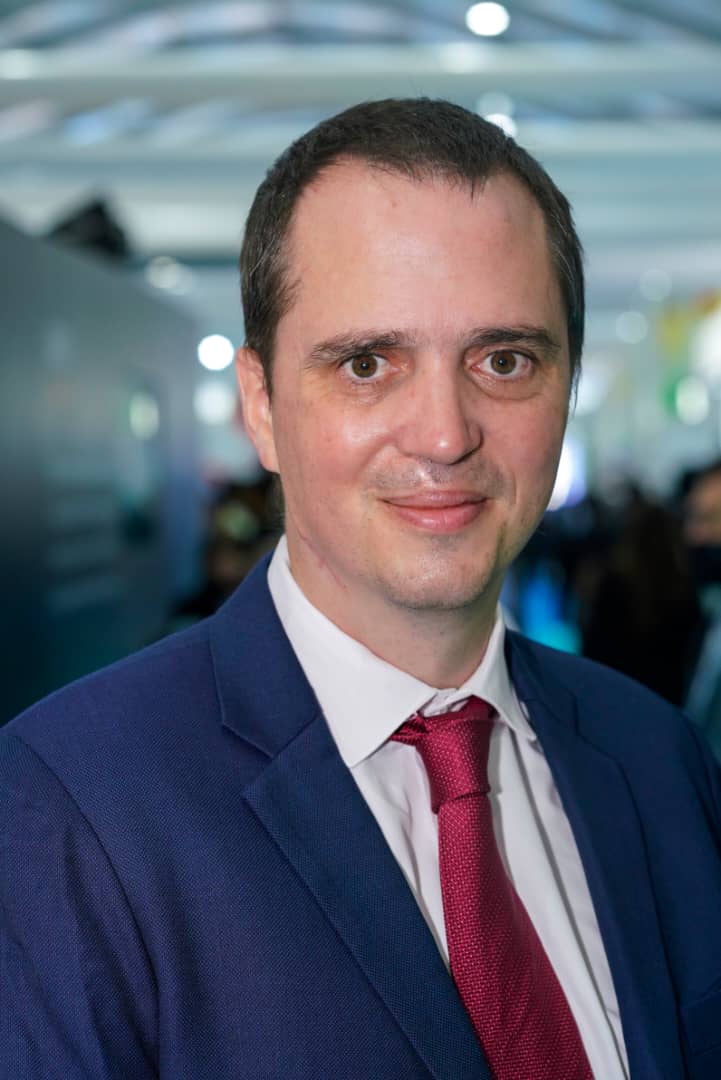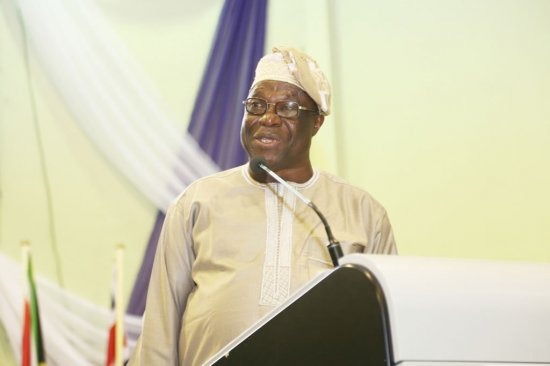Against the backdrop of Rockwells’ increasing focus on Sustainability, the company’s Manager for EMEA Process Industries, Emmanuel Guilhamon, speaks to Sam Nwosu, Editor, Environment Africa Magazine (EAM) on integrating technology driven solutions into the whole process of production.
……………………………………………………………………………………..
EAM: Rockwell has pioneered a phrase ‘Discover what’s Possible”. What does this mean against the growing expectations for industrial and global sustainability?
EG: We’re in a fascinating time where there are a lot of very different things that are converging. We are talking about sustainability, about ‘Discover what’s possible’.
I think there are two things that are colliding right now that are fascinating.
One is the need for sustainability and how do we go to greener means of producing our energy and keeping our way of life?
On the other side is a technology in progress, the advent of Artificial Intelligence; which is really disrupting the way we’re going to work.
How does Rockwell fit into the sustainability picture?
The question of bringing sustainability to the forefront of the way you produce energy, is really a question of scalability and economics. The day it will be as cost effective and as easy to produce renewable energy as it is to produce oil and gas, that day there will be a driving force that will completely eliminate oil and gas and replace it with renewable energy. The question, how do we do that, is necessarily going to be a question of bringing down the costs of producing the renewable energy.
When you think about it, automation, what Rockwell does, is all about reducing costs.
It’s all about making our customers be more productive and more efficient in whatever they do. In a sense, Rockwell is all about, intrinsically using our technologies to make our customers more sustainable. One thing that’s fascinating is that now artificial intelligence is coming into the picture. Rockwell is working hard on a road map of bringing artificial intelligence, applying artificial intelligence to our automation processes in order to take them a step further when it comes to being more productive and more efficient. In the case of sustainability, whether it is capturing carbon, whether it is producing green hydrogen, whether it is energy management systems where you can monitor your production of energy, all of these things is where Rockwell can bring you extraordinarily high-scale economies that will bring this stream of sustainability about.
When we talk about discover what’s possible, it’s the barriers that you can break by being more productive and more efficient and how that can bring the advent of sustainability to life.
It’s really a question of bringing down the cost as i mentioned earlier.
EAM: When you talk about the sustainability future, how does that integrate into current scenarios on managing industrial development against climate change expectations?
E.G: I think we should not oppose human development and climate change. It’s true that today climate change is undeniable, of course, and it’s true that it is caused by humans. So there could be an immediate conclusion that therefore we shouldn’t develop.
But I think the way we should read it is that we should develop in a better way.
We should develop in a much more sustainable way by using much more green energy, of course, or entirely green energy. And we should also seek to reduce our consumption in general; Especially in western countries, we buy too much stuff that we then throw out for no good purpose. So yes, there is a case for human development, even as human development is the cause for climate change; but I think we need to do it differently. And I think a few of the things that need to happen is that governments need to help us set the bar so that our economical benefits are aligned with what’s good for the planet.
There’s an IMF study which shows that, globally, there are hidden government subsidies of about $7 trillion for the fossil fuel industry. And these are there to deal with the fact that there is pollution, with the health damages that this causes and all the dramatic causes of climate change. So if we’re able to fund the fossil fuels up to $7 trillion in US dollars, that’s funded by taxpayers, if we were able to push all of that money instead towards green energy towards renewable energy, we would be able to really have a completely different picture.
Not only would we save $7 trillion from financing fossil fuels, but on top of it, we would have a greener planet, a healthier planet, healthier people. So I don’t think that it’s a question of stopping the growth. I think it’s redirecting our purpose.
It’s going to push humans forward, right? It’s an engine. But what we need, what I see is that governments are kind of the rest of the car. They’re the steering wheels and the wheels, they’re the brakes, they’re the mirrors, and so they need to take the engine to the right place. And so it’s up to the governments to put the right financial incentives, to put a carbon tax, to put punishments for when we have a high carbon footprint, and incentives when we behave the right way as humans to kind of drive that engine in the direction of a more sustainable world, instead of a more consuming world, right.
So I don’t think it’s opposed, I think it’s a matter of redirecting our energy and our incentives so that the humans progress in the right direction.
And technology provided by Rockwell and by many other companies is what is going to help us achieve that as well. Again, once there’s a driving force to make renewable energy more cost effective, initially with the help of incentives, but ultimately thanks to economies of scale and thanks to technology, it will happen all by itself. Fossil fuels will gradually be displaced by renewable energy, and that’s the place that Rockwell, that’s the piece of the puzzle that Rockwell owns in making that transition possible.
EAM: With outdated systems and niggling challenges such as energy deficiency, how do you envisage the infrastructure and digital automation process in Africa will play out?
E.G: Rockwell is present in Africa and that is exactly what we are trying to do, right? That’s why we engage with customers every day. I have a team myself based in South Africa, but they go all across Africa. Speaking with customers, to bring these industrial automation solutions to all of our customers wherever they are. So I think the technology is there and Rockwell is very available to help consult on these topics with our African customers and governments if they wish to, right?
But you’re right, there is a need to bridge that gap and it’s something that we are working on with our African Customers every day.
EAM: Using A.I, there’s a lot of predictive independence. When then can we draw the line especially against input intentions and utilizing human judgements for critical judgement calls?
E.G: First of all, AI is a very dynamic technology today. There are very different levels of A.I across different companies and today we don’t know where the limit is. It’s hard to predict the future. What we’re seeing today is that A.I, I don’t know if you have used some of the AI tools that are there, but typically it doesn’t replace humans.
Today, no matter the type of A.I, is still not enough to replace humans. We are still going to need a human to package all of it.
When is it enough?
Well, that’s a hard question to answer because today it’s not enough; and tomorrow it’s hard to predict where the A.I technologies will go. What I observe, however, is that we’ve had technologies that allowed humans to do less work, for example, the steam engine which replaced the need to have rowers on boats. I think that was a good development and humans have never stopped working. They just do different things. I think we should keep focusing on technologies to help humans remove the tasks that are not useful and focus on more added value tasks. I think humans, thankfully, will always have a future in things to do. If A.I can remove some of the cumbersome tasks, that’s a good thing to do.
You’re also absolutely right that garbage in, garbage out; and the more we are able to have a good read on what’s happening, the more we have good quality data that comes into our systems, the better these systems will be able to operate and help us achieve our goals when it comes to renewable energy and simply maintaining our way of life or developing our way of life anywhere.
EAM: With a growing focus on decarbonization of the Oil and Gas Industry, how do we ensure the sustainability and safety of automating ongoing processes to achieve expected outcomes?
E.G: So the question of decarbonizing the oil and gas industry for me is two-fold. One is, the oil and gas industry to produce oil will have a carbon footprint.
And then there’s the carbon footprint of the oil being consumed. In terms of the carbon footprint of the oil being consumed, that’s a huge human endeavor of trying to move away from fossil fuels and move into greener energies. And that is something that is done globally. Now, that will take a lot of time.
My belief is that it will take a lot of time, and that’s why us humans, need to make sure that we invest in transitioning technologies such as blue hydrogen, carbon capture; technologies like that to lower the industry’s carbon footprints until we can wean ourselves off of the the oil and gas business.
As for the carbon footprints of the oil and gas companies as they produce oil, there are a lot of things that can be done. In Rockwell, we have technologies that monitor emissions.
- We have a technology called ‘PEMS’, Predictive Emissions Monitoring Systems, which looks at your well. And without having to put sensors to monitor the emissions, we’re able to use the sensors that are currently on the well to predict what your emissions are, how much of the fossil fuel is actually being liberated into the atmosphere.
But what’s beautiful with our technology is that it does not require oil and gas producers to go and place additional measurements on their oil wells to monitor their emissions. Our system uses whatever infrastructure is currently in place to predict the emissions.
Now, how well does it work?
Once per year or how frequently the oil and gas producer wants, they can go and actually check what the emissions really are and compare it to what our system has predicted. And what you will see is a match of just a few percentage difference. So it is highly efficient in doing that. Basically our solution allows oil and gas customers to go and monitor their emissions or predict their emissions without having the additional cost of inputting new infrastructure.
Also, you can only optimize what you can measure. So by using our system, you know what your emissions are and then you’re able to go and optimize them. So that’s one of the things we do.
Another key component is that many of our technologies reduce the number of humans that we need to have on some of the oil and gas facilities. And every time you have humans remotely monitoring a project, instead of them going out to the facility, you do a number of things.
First, it’s a much safer operation because you don’t allow all your employees to go on the oil and gas well, where they’re exposed to conditions of pressure in the wellhead and all other explosive atmosphere; all of which can make an oil and gas well somewhat unsafe. So you’re increasing that safety for the humans.
By doing this, you are also reducing the number of persons that need to go on the facilities; you’re reducing the carbon footprint of having to drive them across the country or having to fly them in a helicopter or in a boat across the sea when we’re talking about offshore facilities.
So all that is greatly improving the carbon footprints of our oil and gas customers. So all these technologies will allow the oil and gas operators to have more sustainable operations.
EAM: Rockwell has a phrase, used at all times, ‘Expanding Human Possibility’. What insight does this phrase give; and how does it impact on Rockwell’s growth trajectory?
E.G: ‘Expanding human possibility’ is Rockwell’s vision; it’s what we’re here for. And as those words say, we’re really kind of enabling humans to do more.
Based on the technologies that come available at any point in time, Rockwell is always going to be on the hunt for technologies that will allow us to increase our portfolio, increase our scope, but also do more for humans.
Right now, the next frontier is artificial intelligence. Now, we have layers of data and control of the software that controls that data to improve processes for all of our customers.
The next frontier for us is, how we can use that to enable humans to do more. And how is artificial intelligence going to come as an extra layer of technology to improve further the processes and the ease of which our customers can operate their businesses. Yeah.
So, where are we going? I should say, stay tuned.
Artificial Intelligence is going to be the next enabler to break further barriers. And, i hope we’re going to have exciting things to show in coming years, because we’re working hard on that.







